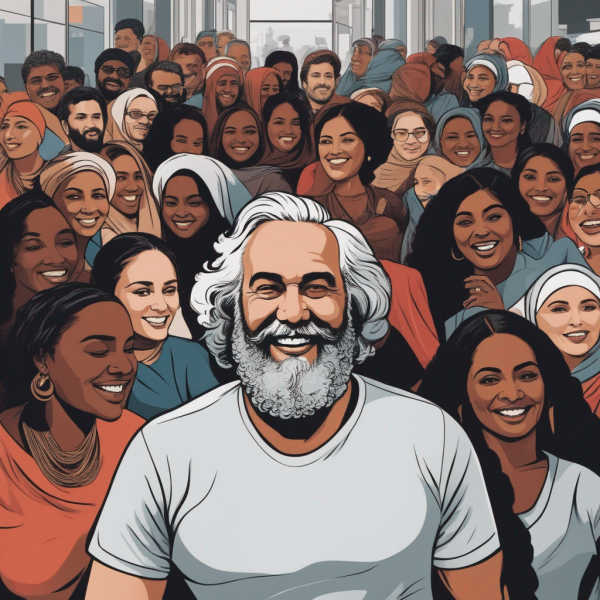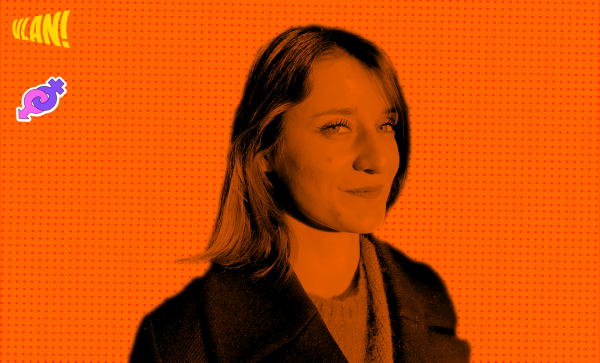The fundamental tension between the unity of humankind and the diversity of human expression has been disrupted by the context of globalization, which has accelerated the frequency of human contact, notably by reducing the constraints of space and time.
Within this framework, the company acts as a true agent of this cultural standardization by promoting a hegemonic corporate culture. This managerial ideology, a response to financial capitalism and neoliberalism that is asserting itself worldwide, imposes an homogenization of professional practices (standardization, Taylorism), professional language (business English), and mobilized references (managerial literature) to achieve greater productivity and performance, in order to ultimately create economic value. Our human ability to create difference clashes with this agent of homogenization.
Diversity, an essential prerequisite for creating economic value.
However, the economic value created by the productive efficiency of this hegemonic corporate culture erodes the very foundations of human economy—the production of goods and services, and their exchange—by standardizing human diversity. Thus, if we follow the analysis of Lévi-Strauss, as commented on by the anthropologist Emmanuel Terray, "for an exchange to be fruitful, or even for it to simply take place, there must be different partners; beings who were identical in all respects would have nothing to exchange." (E.Terray, 2010, 23-44). In this sense, if we reduce diversity to a global homogeneity, there will no longer be any differentiating products to exchange; thus, there is no value creation without differentiation. In other words, the standardizing effects of corporate culture would paradoxically have damaging effects on one of the very reasons for its existence: the creation of economic value.
Beyond this fundamental reason, numerous studies go further on the positive correlation between diversity and economic performance. The recent study by McKinsey & Cie shows that diverse companies are 35% more likely to have financial returns above their industry's national median (McKinsey, 2021). These studies are what they are. Nevertheless, one thing remains certain: diversity is a principle of social organization that always proves to be a winning one.
For this, a short detour into the living world helps us see more clearly. Observing interactions suggests that the most resilient and adaptable species turn out to be those with the richest and most diverse genetic pool. This genetic diversity allows individuals and species to draw upon and select the right skills and abilities to cope with the infinite changes taking place in their environment.
The resemblance of the living world to that of companies is interesting in this regard. Companies, like living species, must constantly reinvent themselves, innovate their offerings of goods and services, shift their business models, and solve complex problems in an environment that increasingly constrains them. The key to meeting these challenges? Multiplying perspectives and skills to provide solutions adapted to these multifaceted challenges. To this end, diversity is a powerful medium, supported by evidence from numerous studies in social psychology and management sciences. The most diverse companies develop a healthier and more collaborative work culture, alternative and powerful leadership styles, a mixing and clashing of ideas conducive to innovation, a better understanding of the diversity of consumer needs, and also greater brand recognition that amplifies their ability to recruit and retain talent. These are all advantages that secure the production of economic value.
In short, in a company, two different people produce more and more efficiently than two similar people, but they also produce a value other than the purely economic: that of building a society and living together.
Towards an authentic and value-creating diversity.
If companies have only recently begun to address the issue of including diversity within their ranks, it is not so much for its potential for economic profitability but more as a reaction to the ailments of our societies: social unrest, minority demands, and globalization with the rise of multinational corporations, which brings up the question of intercultural management. These issues have brought a social and political urgency, along with a uniquely human paradox, back to the forefront for business leaders: how to (continue to) create the unity necessary for the company's long-term survival, while relying on diversity as a fragile source of value?
The question of including diversity in business seems antithetical to one of its social functions: the homogenization of a multifaceted practice like work. Although companies are themselves diverse, they still remain machines for smoothing over differences and eliminating the possibility of a diversity of unique individuals. Therefore, companies must guard against standardizing the diverse elements they house, establish a genuine culture of inclusion, and find the right balance in accepting otherness without one merging into the other, so that exchanges can produce value.
It is by mirroring the history of human societies that business must renew its way of creating value. To move beyond conventional discussions about performance, companies must reconsider their relationship with diversity. It should not be merely an item to check off in an HR strategy or a communication opportunity. It must be seen as a fundamental principle, essential for creating value that is simultaneously economic, social, and human.
Thus, far from being in opposition, managing diversity and seeking a unified organizational identity can mutually reinforce each other. By valuing difference, not as an obstacle to overcome but as a resource to cultivate, companies can not only meet the challenges of our time but also become vectors of inspiration and transformation for society as a whole.





